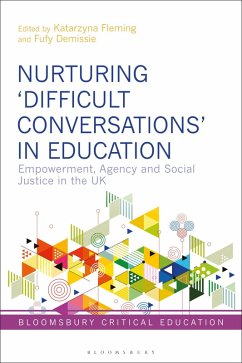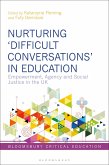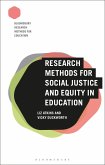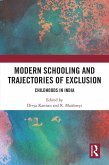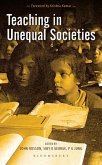This book offers a critical discussion on the necessity for 'difficult conversations' to take place in education, drawing on studies from across the UK. The editors and contributors address three key questions:
- How can 'difficult conversations' be theorised?
- What transformations in thinking and practice can occur through 'difficult conversations'?
- What value do 'difficult conversations' have in enabling understanding and compassion between the diverse communities of today?
The chapters cover a range of topics including supporting children with SEND, parent and carer engagement, childhood trauma, race, disability, the climate emergency, and the researcher's positionality. The contributors draw on the theoretical work of bell hooks, Linda Alcoff, Paulo Freire, Victor Turner, Homi Bhabha, Nel Nodings, Melanie Nind, Emile Bojesen, Gayatri Chakravorty Spivak, Mathew Lipman, and other contemporary theories. They argue against the prevailing deficit-based perspectives about marginalized communities and invite deep thinking about the nature of oppression experienced in many spheres of education and therefore in our society. Ultimately, the book advocates for the empowerment and agency of anyone facing social inequalities through engagement in 'difficult conversations' as a means of transformation and social change.
- How can 'difficult conversations' be theorised?
- What transformations in thinking and practice can occur through 'difficult conversations'?
- What value do 'difficult conversations' have in enabling understanding and compassion between the diverse communities of today?
The chapters cover a range of topics including supporting children with SEND, parent and carer engagement, childhood trauma, race, disability, the climate emergency, and the researcher's positionality. The contributors draw on the theoretical work of bell hooks, Linda Alcoff, Paulo Freire, Victor Turner, Homi Bhabha, Nel Nodings, Melanie Nind, Emile Bojesen, Gayatri Chakravorty Spivak, Mathew Lipman, and other contemporary theories. They argue against the prevailing deficit-based perspectives about marginalized communities and invite deep thinking about the nature of oppression experienced in many spheres of education and therefore in our society. Ultimately, the book advocates for the empowerment and agency of anyone facing social inequalities through engagement in 'difficult conversations' as a means of transformation and social change.

